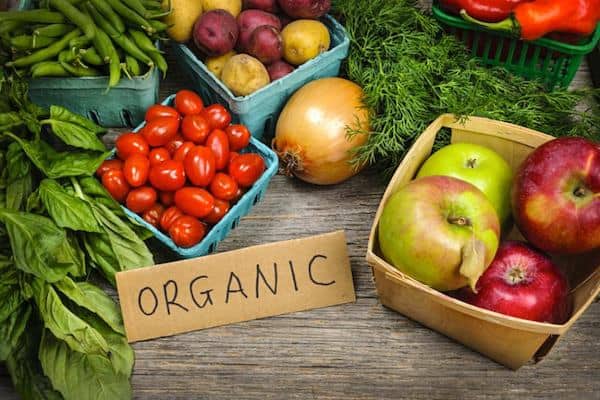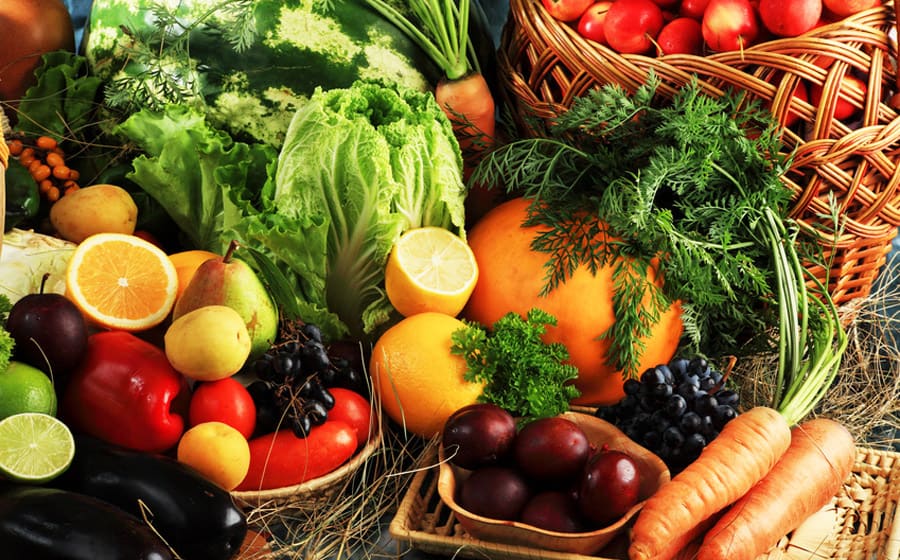
According to a recent study, yes, obtaining organic produce really does matter, at least for the reason that it contains less chemicals and pesticides.
When Harvard T.H. Chan School of Public Health in Boston conducted a study on the pesticide contaminants found on fresh fruit, they found that the residue left on both fruits and vegetables is lowering sperm counts.
For the study, researchers used the USDA Pesticide Data Program to determine which out of over 30 different types of fresh fruits and vegetables had the most pesticide residue. They then categorized for test subjects. Produce with higher pesticide exposure included apples, potatoes, spinach, blueberries, strawberries, and peppers. Foods with lower levels of pesticides included peas, onions, avocados, beans, and grapefruit.

When Researchers examined over 300 different semen samples from males with varying age groups, habits, and diet over a five year period, they found that normal diets with balanced fruit/vegetable intake had no noticeable effect on sperm count, and that eating more helpings of produce with the least amount of pesticide residue could actually help improve fertility.
But unfortunately when participants ate more servings of fruits and vegetables in the high pesticide category, their sperm counts were decreased up to 49%, and the morphology of sperm, or the size, and shape was 32% more abnormal or deformed.
The study states:
“Total fruit and vegetable intake was not associated with semen quality (Table II). There were, however, inverse relations between intake of high pesticide residue fruits and vegetables and semen quality (Table III). On average, men in the highest quartile of high pesticide residue fruits and vegetables had 49% (95% CI: 31, 63) lower total sperm count, 32% (95% CI: 7, 58) fewer morphologically normal sperm and 29% (95% CI: 7, 52) lower ejaculate volume than men in the lowest quartile of intake.
Furthermore, intake of high pesticide fruits and vegetables was associated with a significantly lower total motile count (P = 0.003) and lower total normal count (P = 0.003) (Fig. 1). On the other hand, there was a significant linear trend towards increasing percentage with morphologically normal sperm with higher intakes of low-to-moderate pesticide residue fruits and vegetables (P, trend = 0.04) (Table III). Intake of low-to-moderate pesticide residue fruits and vegetables was unrelated to other semen quality parameters.”
What to do? Definitely consider buying highly sprayed fruits and vegetables organic when you can, and feel okay by purchasing conventionally grown foods (like avocados and onions) which are sprayed less when/if you are on a budget.
Also be aware that high levels of pesticides on fresh food are not the only contributing factor to decreased fertility and imbalanced hormone levels. These toxins have been shown to cause irregularity in the overall reproductive health and potency of many individuals.

To be fair, the study did also state that varying factors may have also had an effect on the results, such as smoking, BMI, and age. They also did not examine the individual amount of pesticide exposure per basis, but used the PDP report data to estimate which foods would be more contaminated. They don’t suggest that people should stop eating fruits and vegetables, but that they should be aware of pesticide contamination in their produce and try to limit exposure as much as possible.
Such is intelligent advice. You can check out the list of most contaminated and cleanest produce here.
This is one of the first of many studies likely to show some of the effects pesticides can have on human health.
Think the finding deserves to be spread? Please share so others may become more mindful of their choices.


